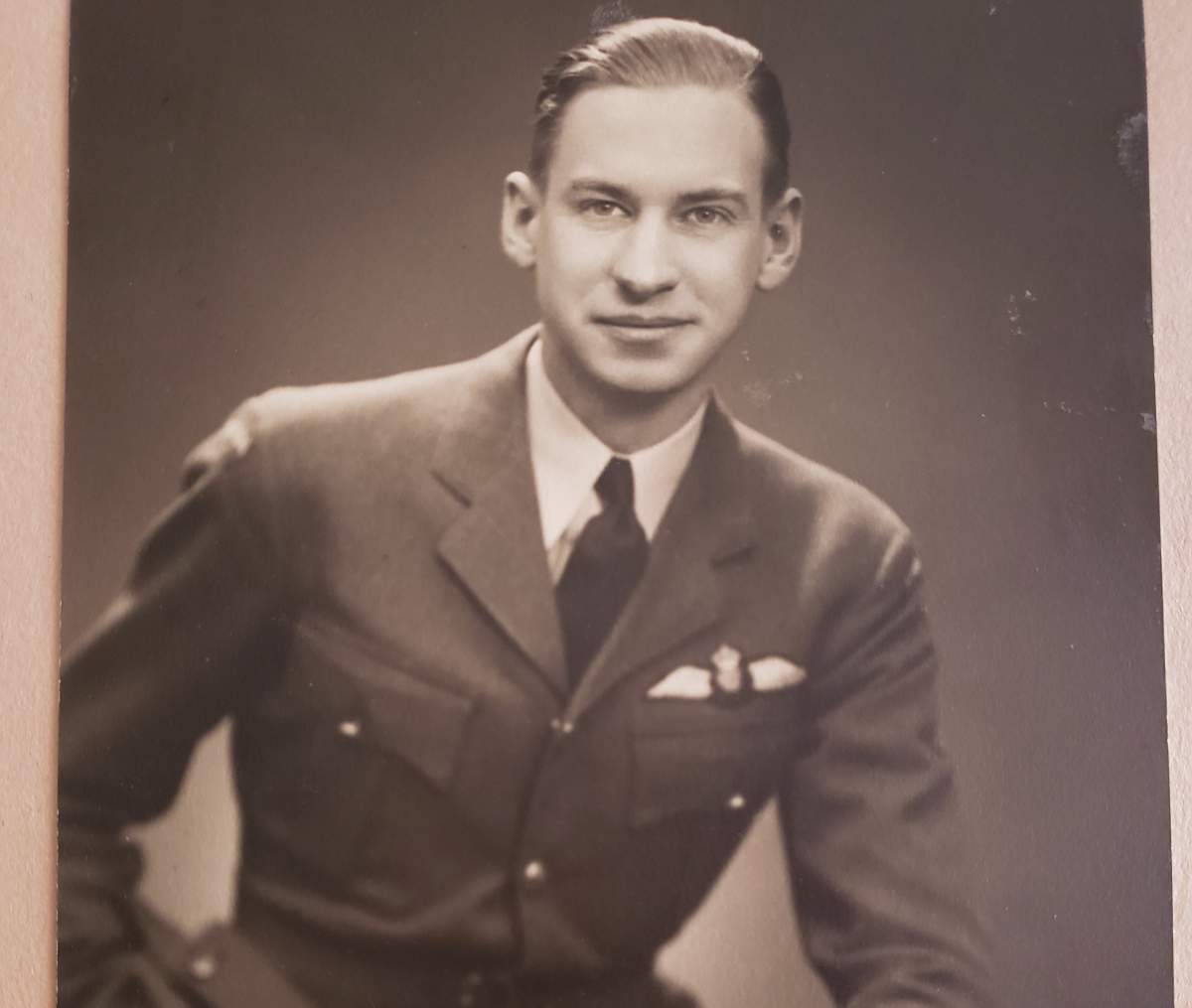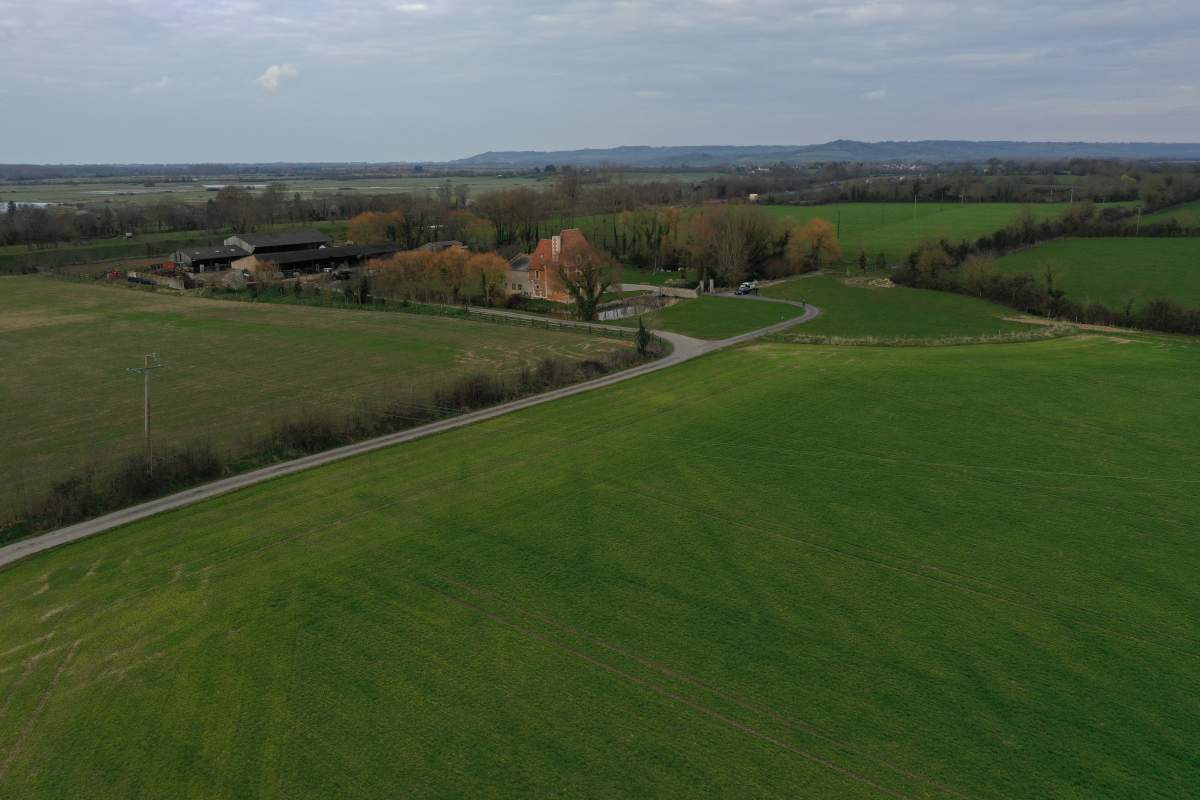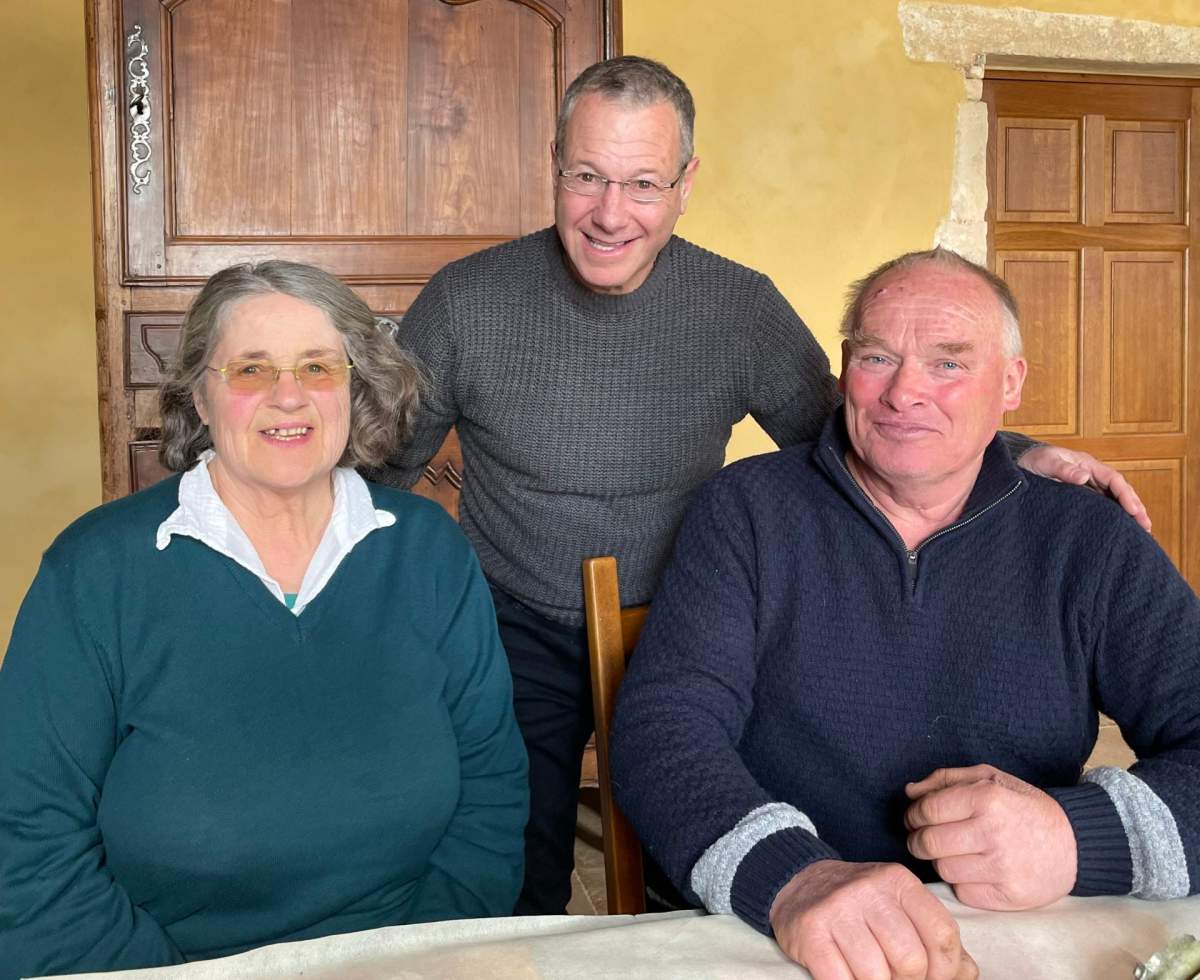As Canada marks the 78th anniversary of D-Day, a pivotal point in the Second World War, Montreal’s Harvey Engelberg has been thinking a lot about sacrifice and how without a series of selfless acts in the face of harrowing danger, he would have never been born.

“How do I repay a debt to somebody who gave a family life?“ he wonders.

His father Cobby Engelberg was a young boxing champion when he joined the Royal Canadian Air Force at 24.
Cobby was a radio operator during Operation Tonga, on one of dozens of the United Kingdom Royal Air Force planes to leave England before midnight the night before D-Day.
Their mission was to drop paratroopers behind enemy lines in German-occupied France to soften enemy defenses ahead of the full scale invasion.
“Not only did they go over enemy territory before their own troops were there, they had the furthest mission from base,” said Harvey Engelberg.
His father’s plane, a Dakota, was captained by 26-year-old flying officer Harvey Edgar Jones.
Jones had given tours of Niagara Falls and studied business at the University of Toronto before the war.
Jones’ niece Helen Peterson, now in her 80s, remembers him well.
“The biggest thing I always got a kick out of was the fact he was so tall he had to duck through the doorways,” she remembers.
As their aircraft, carrying 26 men on board, rumbled over the French coast into the dark and dangerous unknown, German flak suddenly tore through the night sky.
The Dakota was hit and immediately burst into flames.
Pilot Jones ordered everyone to abandon the aircraft, and most did. Jones, however, refused his parachute.

According to multiple accounts, Jones saw Cobby Engelberg injured and unconscious behind him, and decided to attempt a landing.

Get daily National news
“I can only imagine, he must have looked down and seen him lying there and made a decision. What do I do? Do I jump and say goodbye to my buddy or do what I have to?” Harvey Engelberg told Global News.
The Dakota plummeted into the darkness below, crashing at a farm in the small town of Basseneville, France.
Harvey Edgar Jones died on impact.
Cobby Engelberg somehow survived despite severe injuries, including a fractured skull.
“From what I understand, he was under the wing that was still on fire when they pulled him out of there. A lot of luck involved here,” said Harvey.
Cobby’s luck did not stop there.
The farm’s owners brought Engelberg into their home, offering medication and treating his wounds. They would take in others, only later sharing details of their selflessness in a letter to Cobby.
“The two heroes in this story are the pilot and the farmers who save them,” said Harvey.
Alice Duhamel and her son Arthur looked after the farm and the injured men. They cared for Engelberg and others until an Allied unit reached them, transporting the wounded to hospital.
Their heroism saved lives, and they would pay dearly for it.
Duhamel wrote in a letter to Cobby that she and her son were imprisoned by the Nazis for helping the Allies.
“My son was put to death by the SS,” she wrote. “After six weeks, we succeeded to escape.”
“You read that, and how do you not fall apart?” Engelberg said as he showed the letter to Global News “That’s crazy.”

The Duhamels buried Harvey Edgar Jones on their farm, adorning the grave with flowers and a cross bearing the words “Died for France, Long live England.”
Years later, Cobby Engelberg named his son Harvey for the pilot who saved his life.
“Listen, I got a name from somebody who saved my dad. If he saved my dad, he saved me and my children and my grandchildren. We’re 25 ancestors of Cobby Engelberg alone,” Harvey said through tears.
Engelberg has been on a lifelong quest to find the descendants of the pilot and the farmers to thank them.
In spite of his insatiable desire to show the Jones and Duhamel families gratitude, he had never had any luck finding them.
Imagine Harvey Engelberg’s surprise when a hand written letter arrived at his Montreal home this March from Basseneville, France.
“She said ‘I have pieces of your father’s plane. Would you like them?’ I immediately said, ‘yeah, I’m coming to see you,’” he recounted.
Thérèse Férey and her husband who now live on that farm, found pieces of Dakota KG356 while working the land some 78 years after that fateful night.
The discovery inspired her to launch her own mission to bring awareness to the heroes who bravely risked their lives to save her country.
“We never, never, never heard anyone speak of this plane in the village. I found this disgusting,” Férey told Global News on the phone from Basseneveille.

She spoke of growing up during the German occupation, living in fear.
“I was shocked we never talked about Cobby or Captain Jones. I didn’t understand. If people come to liberate you and get into an accident, you cannot stay indifferent. You can’t act like nothing happened.”
In April, Engelberg visited the green pasture where the plane went down. He was overcome as the family handed him the pieces of history.
“It was very emotional. It was just amazing to see these strangers, you know, 6,000 miles away caring as much as me,” he said. “It sort of restores your faith in humanity when you realize it’s not all bad news out there.”
He donated the shards of twisted metal to the Juno Beach Centre, Canada’s war museum in Normandy, where they will soon be displayed.
“I honestly couldn’t find a better story for us to be telling in our museum,” said Alex Fitzgerald-Black, executive director of the Juno Beach Centre.
Although Harvey Engelberg felt some peace, his work still felt unfinished – he hadn’t been able to thank Harvey Edgar Jones’ family.
“I almost hit a wall,” he told Global News. But things didn’t end there.
In recent weeks Global News tracked down members of Jones’ family and organized a sort of online reunion.
Helen Peterson is Harvey Jones’ niece, the daughter of his older sister, Isobel Wall. She knew him as “Uncle Harv.”

“He was my one and only uncle, my favourite uncle,” she said from Milwaukee, Wisconsin in an online video call with Engelberg.
Also on the call was Colleen McGovern, Peterson’s niece and Jones’ great-niece, who lives in California.
“I just think the whole story is so beautiful and I love it,” she said. “It’s an incredible story.”
They knew that Jones had crashed, but were not aware of the details, or that he had saved others on the doomed flight.
Peterson said finding out someone was named in her uncle’s honour has been a highlight of her life.
“I’m just getting all emotional and just thinking about how wonderful it is,” she said.
After the war, Harvey Edgar Jones was reinterred at the Ranville War Cemetery in Normandy, alongside thousands others who never made it home.
He got a mention in Dispatches for his heroism, but was never awarded a higher military honour like the Victoria Cross.
Alex Fitzgerald-Black sees that as a reason Jones’ story is relatively unknown.
“Probably the thing that stuck out to me the most is just that hardly anybody knows his story,” he told Global News.
Three families on two continents forever connected by an act of bravery still felt through the generations hope this Canadian hero’s story gets a second look.





















Comments
Want to discuss? Please read our Commenting Policy first.